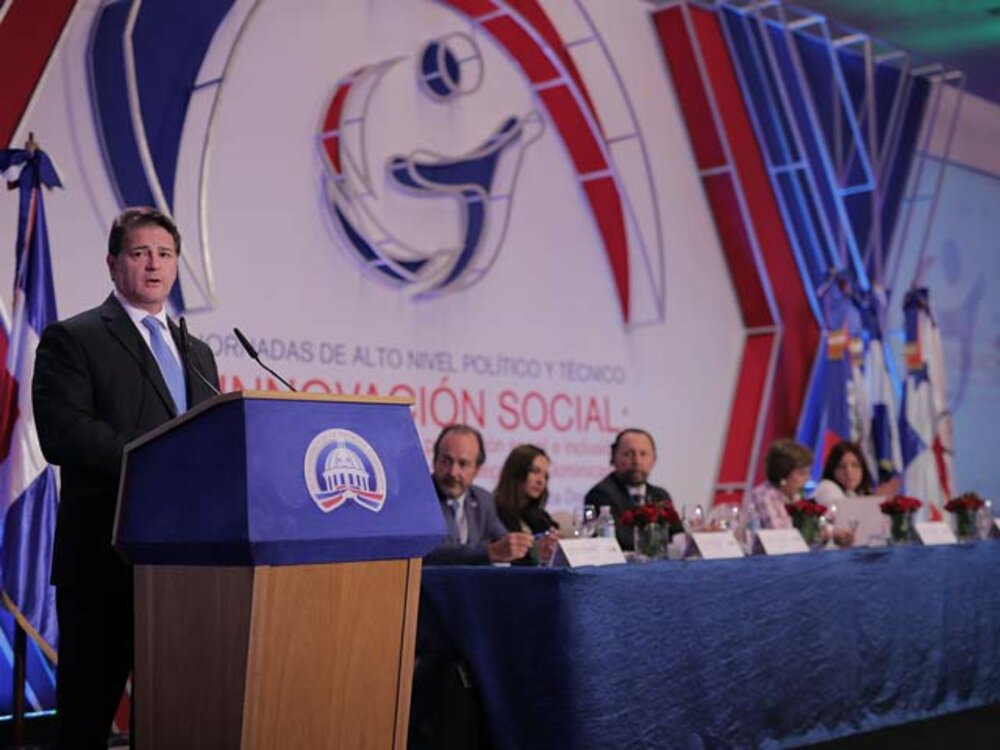CABEI participates in forum on the challenges of social innovation in the region

Among its priorities, CABEI aims to promote economic growth with social inclusion, increase the growth potential, and create conditions for a more sustainable and equitable development.
Punta Cana, April 11, 2018.- The Central American Bank for Economic Integration (CABEI) participated in a workday of high political and technical level: "Social Innovation: Formulas for better social protection and productive inclusion in Central America and the Dominican Republic". This event seeks to promote an Intersectoral Regional Agenda on Social Protection and Productive Inclusion by 2030 to promote equality, equity and well-being.
The conference was attended by prominent speakers who discussed the challenges in the implementation of social protection systems in order to assess the political decisions that must be taken to leverage innovation strategies in the countries of the Central American Integration System (SICA). Likewise, the event seeks to promote a greater intersectoriality among the decision makers to achieve a greater impact on development.
The Executive Vice President of CABEI, Alejandro Rodríguez Zamora, moderated the panel: "Barriers to equity and the future of intersectorality within the framework of the SDGs", comprised by: the Social Affairs Officer of the Economic Commission for Latin America and the Caribbean, Rodrigo Martínez; the Secretary of Social Inclusion of the Presidency of El Salvador, Vanda Pignato; the Subregional Coordinator for Mesoamerica, FAO Tito Díaz; and a member of the Social Economy Group of the European Economic and Social Committee, Carlos Trias.
Rodríguez Zamora led the development of the panel, where the importance of constructing intersectoral paths was discussed in a strategic manner to obtain greater impacts on the development of stakeholders and create environmental resilience.
During the panel's conclusions, the Vice Chair of CABEI emphasized the need to broaden the spaces for intersectoral articulation to create synergies among economic, social and environmental policies, as an indispensable requirement to reduce poverty, promote equity in distribution of income, expand the inclusion of groups of special interest and create environmental resilience.
Rodriguez also added, "we have a common struggle to be increasingly competitive in this world, so we have to converge on strategies that improve our productivity, training our human resources for the innovation of sustainable production systems.
"To streamline the intersectoral coordination commitments adopted in the Partnership of the Secretariats and Offices of the SICA Social Subsystem in Favor of its Strengthening and in Support of the Compliance with the Sustainable Development Goals (SDGs), we must ensure that the actions of the SICA entities, together with multilateral organizations, both financial and non-financial, contribute to making the SDGs an operational framework that provides tangible results," concluded the Executive Vice President of CABEI.








